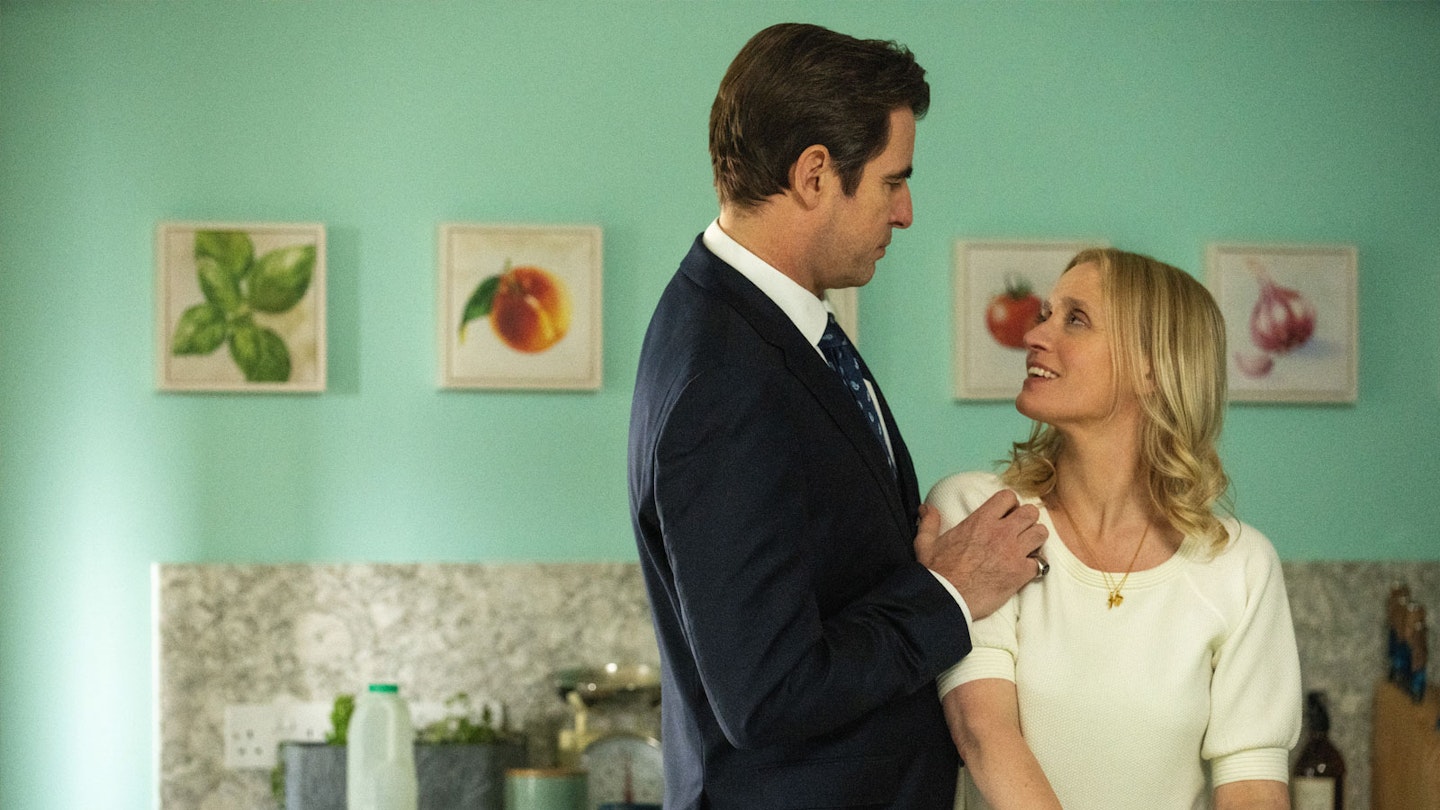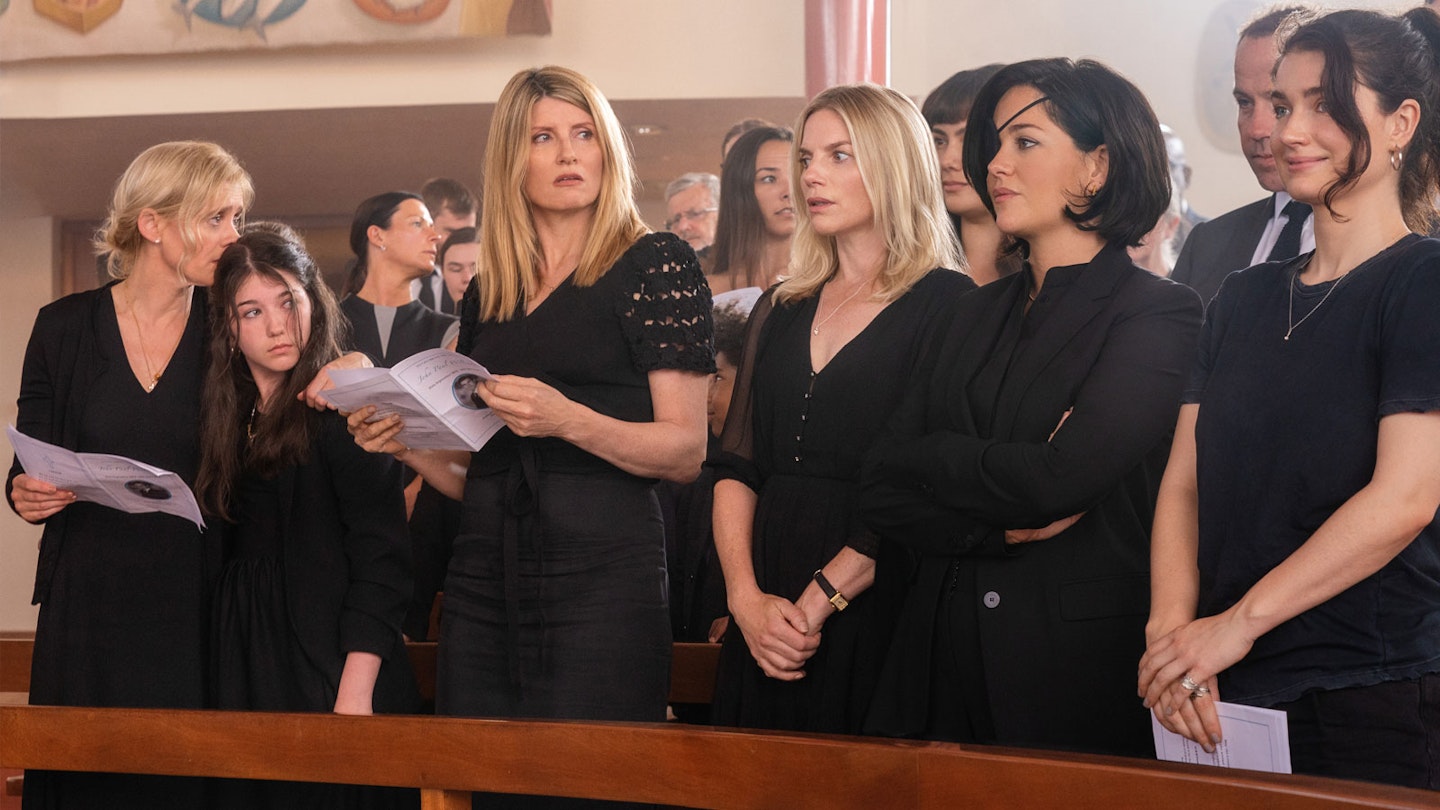A distraught widow tenderly strokes the hair of her newly dead husband, then urgently tries to hide his sudden, rigor mortis-induced erection before the funeral guests arrive. That opening moment gives you the exact tone ofSharon Horgan’s latest. Like most Horgan creations, Bad Sisters has the bones of a serious drama, veiled in dark, acutely observed comedy.
The widow is Grace (Anne-Marie Duff); the tumescent corpse John Paul (Claes Bang), a man who died relatively young, but most would say not before time. As Grace’s family gathers for the funeral, it quickly becomes clear that John Paul’s death was probably not an accident, and her sisters seem to be hiding quite a lot of secrets. Across two timelines, one beginning six months before John Paul’s death, the other immediately after, we learn of the many reasons people wanted the man dead and multiple bungled attempts to kill him.

There is a lot going on in the plot of this show, based on the Belgian series Clan, but it’s written so tightly, and acted so exceptionally, it never feels bogged down in exposition. Grace’s sisters are a close-knit group: matriarchal Eva (Horgan), who raised the younger ones after the death of their parents; sensible but bored Ursula (Eva Birthistle); impetuous Bibi (Sarah Greene); and chaotic youngest Becka (Eve Hewson). Grace has drifted from the group, her personality fading under John Paul’s constant, crushing emotional abuse. When Bibi casually suggests the only way to help Grace is to kill John Paul, the others, who all have extra reasons for wanting him dead, think the idea might have merit. Two brothers (Brian Gleeson and Daryl McCormack), whose company will have to pay out on John Paul’s life insurance policy, are determined to prove he was murdered and save themselves from bankruptcy.
Horgan’s characters are written with an honest, sympathetic sense of chaos.
Initially it seems like there can’t be that much to the story — the sisters wanted John Paul dead and got their wish — but over the ten episodes, the family story unfolds in surprising ways. Horgan’s characters are written with an honest, sympathetic sense of chaos. The sisters are not outwardly ‘good’ people. They cheat on kind spouses, lie, steal and, importantly, plot a man’s death, but Horgan makes us feel for them because they’re doing the best they can. Much of the comedy comes from deep-rooted sibling dynamics that will always out, causing bickering and teasing even when you’re trying to blow up a man in his holiday cabin. The scheming can get a bit silly, but the silliness is always reined in.
After about five minutes in the company of John Paul, you’re willing the sisters to succeed. He is awful. Bang gives him all the smug self-confidence he gave Dracula, but with the charm extracted and extra bursts of terrifying callousness. Finding out just how he got his comeuppance, and all the ways he had it coming, makes for a comedy-drama with a black but surprisingly warm heart.


